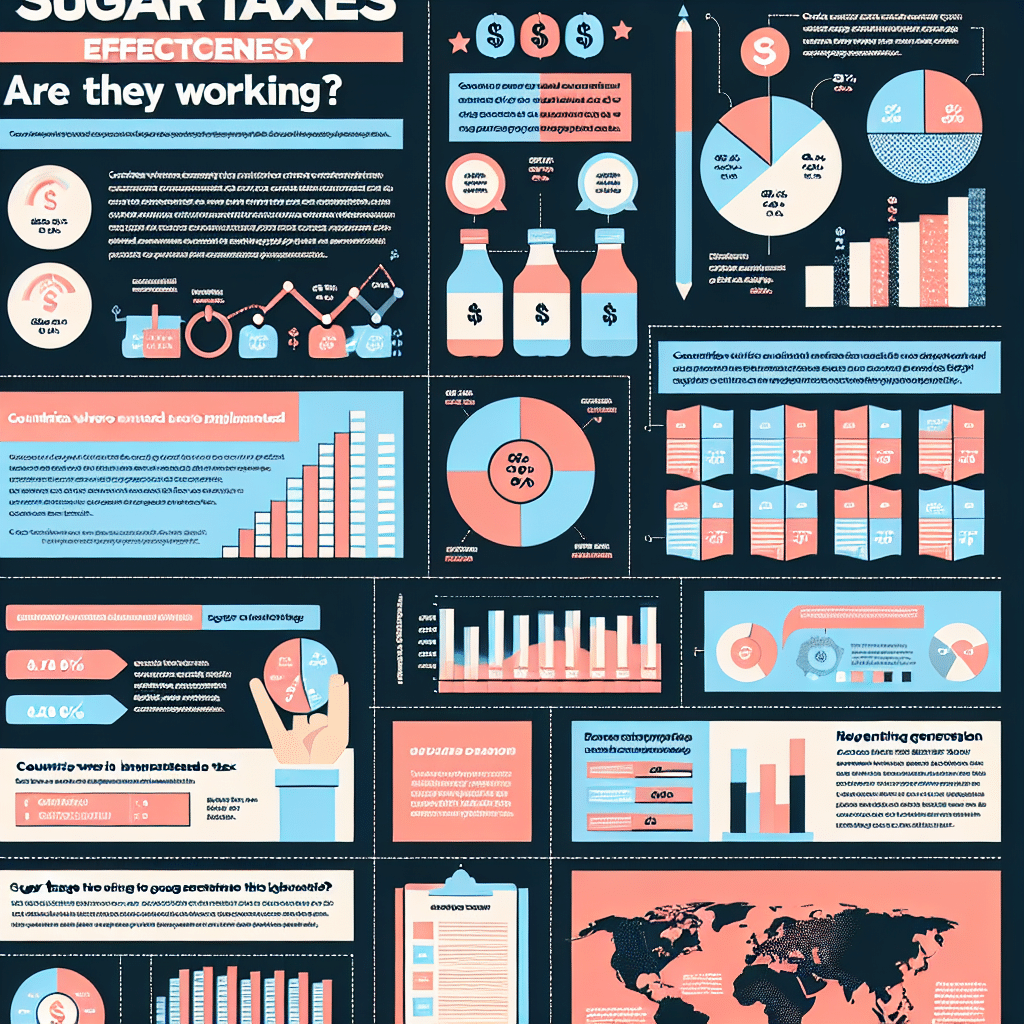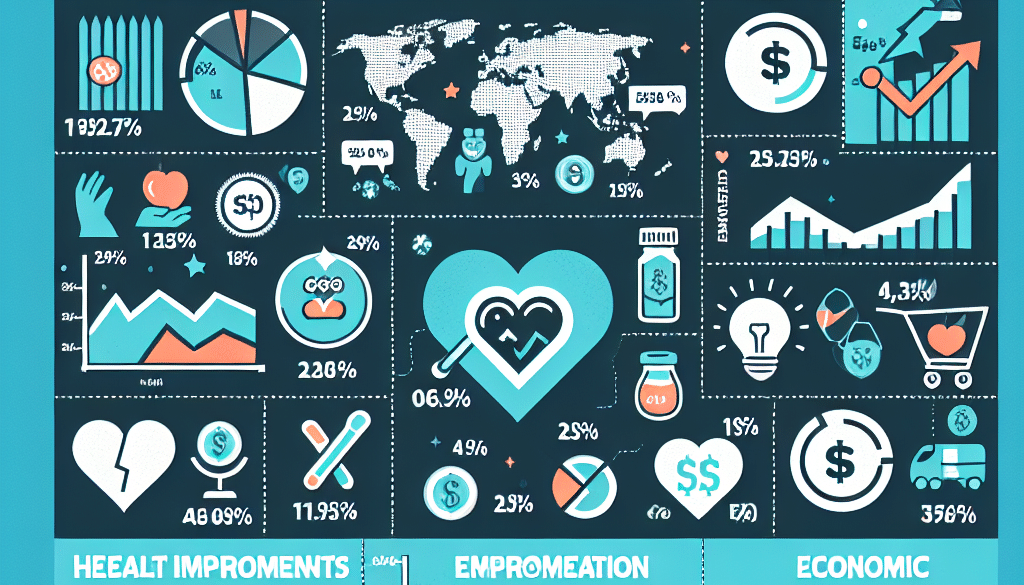Sugar Taxes Effectiveness: Are They Working?
-
Table of Contents
- Sugar Taxes Effectiveness: Assessing Their Impact on Public Health
- The Rationale Behind Sugar Taxes
- Global Case Studies: Sugar Taxes in Action
- Statistical Evidence: Do Sugar Taxes Reduce Consumption?
- Health Outcomes: Are Sugar Taxes Making People Healthier?
- Criticism and Challenges of Sugar Taxes
- Conclusion: Weighing the Effectiveness of Sugar Taxes
- Enhance Your Health with ETprotein’s High-Quality Protein Products
Sugar Taxes Effectiveness: Assessing Their Impact on Public Health

In recent years, the global battle against obesity and related health issues has led to the implementation of sugar taxes in various countries. These taxes are designed to reduce the consumption of sugary drinks and snacks, which are often linked to obesity, diabetes, and other health problems. The effectiveness of sugar taxes has been a topic of much debate, with proponents arguing that they lead to healthier populations and critics claiming they are ineffective or unfairly penalize low-income consumers. This article delves into the evidence to assess whether sugar taxes are truly working.
The Rationale Behind Sugar Taxes
The primary goal of sugar taxes is to discourage the consumption of sugar-sweetened beverages (SSBs) and foods by making them more expensive. The rationale is based on basic economic principles: as the price of a product increases, the demand for that product typically decreases. Health advocates argue that by reducing the intake of sugary products, populations will see a decrease in obesity rates and related health conditions.
Global Case Studies: Sugar Taxes in Action
Several countries and cities have implemented sugar taxes, providing real-world examples of their impact. Here are some notable case studies:
- Mexico: In 2014, Mexico introduced a tax on SSBs. Research has shown a significant reduction in the purchase of taxed beverages, with a more pronounced effect among low-income households.
- Berkeley, California: The first U.S. city to implement a sugar-sweetened beverage tax in 2015. Studies indicate a decrease in SSB consumption and an increase in water sales post-tax.
- The United Kingdom: The UK’s Soft Drinks Industry Levy, introduced in 2018, led to a significant reformulation of products to reduce sugar content, thus lowering the overall sugar consumption from beverages.
Statistical Evidence: Do Sugar Taxes Reduce Consumption?
Statistical evidence from various studies suggests that sugar taxes can lead to a reduction in the consumption of sugary drinks and snacks. For instance:
- A study in the British Medical Journal found that Mexico’s sugar tax led to a 12% reduction in the purchase of taxed beverages by the end of the first year.
- Research published in the American Journal of Public Health indicated that Berkeley’s SSB tax resulted in a 21% drop in the consumption of sugary drinks within low-income communities.
These statistics suggest that sugar taxes can be effective in reducing sugar consumption, particularly among the most vulnerable populations.
Health Outcomes: Are Sugar Taxes Making People Healthier?
While reduced consumption of sugary products is a positive outcome, the ultimate goal of sugar taxes is to improve public health. Some studies have linked sugar taxes to positive health outcomes:
- Research in Mexico has shown a decrease in the prevalence of overweight and obesity rates following the implementation of the sugar tax.
- Modeling studies predict that sugar taxes in the UK could lead to a significant reduction in obesity rates and associated diseases over the next decade.
However, it is important to note that long-term studies are needed to fully understand the impact of sugar taxes on health outcomes.
Criticism and Challenges of Sugar Taxes
Despite the evidence supporting the effectiveness of sugar taxes, there are criticisms and challenges to consider:
- Regressive Nature: Critics argue that sugar taxes disproportionately affect low-income consumers who spend a larger portion of their income on food and beverages.
- Substitution Effect: There is a concern that consumers may substitute sugary drinks with other unhealthy options, potentially negating the health benefits.
- Industry Resistance: The beverage and food industry often opposes sugar taxes, citing potential job losses and economic harm.
These challenges highlight the need for comprehensive strategies that include education, subsidies for healthy foods, and other public health initiatives alongside sugar taxes.
Conclusion: Weighing the Effectiveness of Sugar Taxes
In conclusion, the evidence suggests that sugar taxes can be an effective tool in reducing the consumption of sugary drinks and snacks, potentially leading to better health outcomes. However, their success depends on careful implementation, monitoring, and complementary health policies. It is clear that sugar taxes alone cannot solve the obesity epidemic, but they can be a significant step in the right direction.
Enhance Your Health with ETprotein’s High-Quality Protein Products
While reducing sugar intake is crucial for a healthy lifestyle, it’s also important to ensure you’re getting enough protein. ETprotein offers a range of high-quality, organic protein products that can help you maintain a balanced diet. Their products are non-GMO, allergen-free, and come with a neutral taste, making them an excellent addition to any meal. Whether you’re looking to manage your weight, build muscle, or simply improve your overall health, ETprotein has a protein solution for you.
About ETprotein:
ETprotein, a reputable protein and L-(+)-Ergothioneine (EGT) Chinese factory manufacturer and supplier, is renowned for producing, stocking, exporting, and delivering the highest quality organic bulk vegan proteins and L-(+)-Ergothioneine. They include Organic rice protein, clear rice protein, pea protein, clear pea protein, watermelon seed protein, pumpkin seed protein, sunflower seed protein, mung bean protein, peanut protein, and L-(+)-Ergothioneine EGT Pharmaceutical grade, L-(+)-Ergothioneine EGT food grade, L-(+)-Ergothioneine EGT cosmetic grade, L-(+)-Ergothioneine EGT reference grade and L-(+)-Ergothioneine EGT standard. Their offerings, characterized by a neutral taste, non-GMO, allergen-free attributes, with L-(+)-Ergothioneine purity over 98%, 99%, cater to a diverse range of industries. They serve nutraceutical, pharmaceutical, cosmeceutical, veterinary, as well as food and beverage finished product distributors, traders, and manufacturers across Europe, USA, Canada, Australia, Thailand, Japan, Korea, Brazil, and Chile, among others.
ETprotein specialization includes exporting and delivering tailor-made protein powder and finished nutritional supplements. Their extensive product range covers sectors like Food and Beverage, Sports Nutrition, Weight Management, Dietary Supplements, Health and Wellness Products, and Infant Formula, ensuring comprehensive solutions to meet all your protein needs.
As a trusted company by leading global food and beverage brands and Fortune 500 companies, ETprotein reinforces China’s reputation in the global arena. For more information or to sample their products, please contact them and email sales(at)ETprotein.com today.












